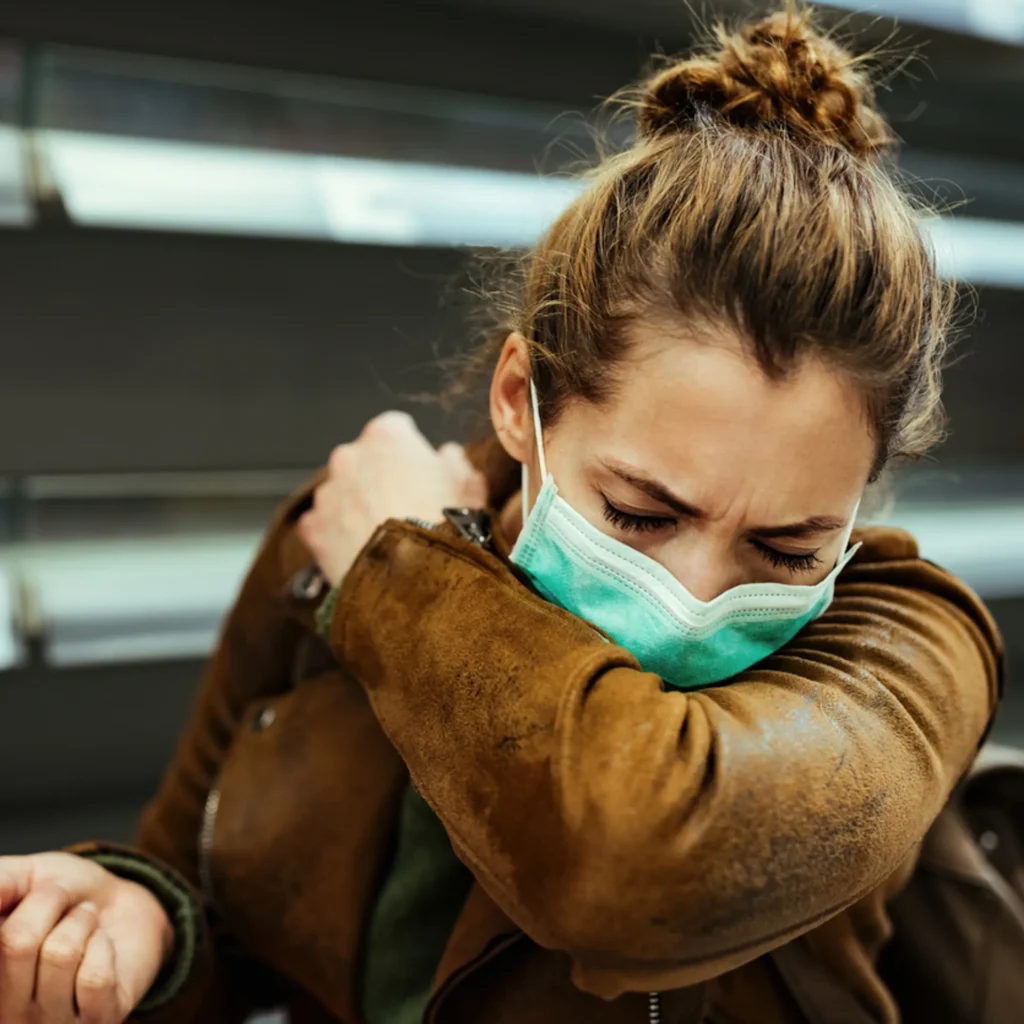What is COVID-19?
Coronavirus disease 2019 (COVID-19) is an infectious disease caused by the virus SARS-CoV-2. While no longer a public health emergency, COVID-19 is still around. You can take steps to protect yourself and others, especially when cases increase in the community.

Who is most at risk?
COVID-19 can affect anyone, but it’s more serious for some people, including:
- Older people
- People with existing health problems (including lung disease)
- Pregnant women.
People in these groups should take extra care to protect themselves.
Symptoms
COVID-19 symptoms can range in severity. Some people recover quickly, while others can get very sick. Others have no symptoms (asymptomatic) but can still spread the virus.
Common symptoms are:
- Fever
- Cough
- Shortness of breath
- Changes to smell or taste.
Other symptoms can include:
- Tiredness
- Muscle pains
- Sore throat
- Headaches
- Runny or blocked nose, sneezing
- Chest pain
- Stomach or bowel issues such as vomiting and diarrhoea
- Dizziness or confusion.
The infectious period for COVID-19 can vary. People may be infectious from 2 days before their symptoms appear until their symptoms are gone (which may be up to 10 days). Most people who get COVID-19 recover completely. Symptoms can persist in some people, which is known as long COVID.
Prevention
You can protect yourself and others from COVID-19 by:
- Staying up to date with you COVID vaccinations
- Practising good hygiene (e.g. coughing or sneezing into your elbow or a tissue, regularly washing your hands)
- Staying at home if you’re sick with cold and flu symptoms, or wearing a face mask if you’re sick and need to leave your home
- Avoiding close contact with people who are sick
- Avoiding close contact in indoor or crowded settings (e.g. by maintaining physical distance, avoiding these settings, or wearing a face mask)
- Improving ventilation, such as by opening windows.
Vaccines
The best protection against COVID-19 is to stay up to date with your vaccinations. Check the Department of Health and Aged Care website for the latest advice and speak with your healthcare team to make sure you are up to date and protected. COVID vaccinations are free and available from medical clinics and pharmacies across Australia.
Diagnosis
There are two different tests that are commonly used to detect if you have the COVID-19 virus; rapid antigen tests (RATs) and polymerase chain reaction tests (PCRs).
Talk to your doctor about which test is best and what to do if you test positive. Having a plan is vital if you’re at risk of getting very sick from COVID-19.
Treatment
Antiviral treatment
If you test positive, you might be able to get antiviral treatment if you are:
- 70 or older
- 50-69 with two other risk factors
- Aboriginal or Torres Strait Islander, 30 or older and with one other risk factor
- Someone with a weak immune system
- Someone who has been hospitalised before from COVID-19
Other risk factors include living in aged care, having long-term health problems (like lung disease), or living far away from healthcare. Talk to your doctor about whether antiviral treatment is right for you. Check the Department of Health and Aged Care website for eligibility.
Was this page helpful?
Good job! Please give your positive feedback
How could we improve this post? Please Help us.